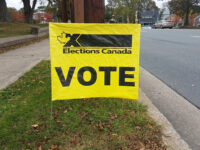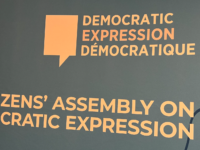The 2025 federal election is now in its second week and the battle for attention and ultimately votes is taking place both online and offline. The enormous influence of online sites such as Twitter, Facebook, TikTok and a handful of others raises real issues about how information spreads, its reliability, and risks of misinformation and disinformation. Aengus Bridgman is the Director of the Media Ecosystem Observatory and an Assistant Professor (Research) at the Max Bell School of Public Policy at McGill University. A contributor to studies on information issues in multiple federal and provincial elections, he is one of Canada’s leading experts on misinformation, digital activism, and the politics of digital media. He joins the Law Bytes podcast to talk about the state of the major platforms in Canada in 2025, how our information ecosystem is vulnerable to misinformation, and what we should be doing about it.
Post Tagged with: "disinformation"
The Law Bytes Podcast, Episode 109: Striking the Balance on Misinformation and Freedom of Expression – My Examination of Canadian Policy Solutions
The Canadian Parliament is set to resume this week and it’s a safe bet that Internet regulation will be part of the legislative agenda in the coming months. One of the toughest policy issues involve misinformation, which can be difficult to define and potentially to regulate. The Canadian Commission on Democratic Expression was established in spring 2020 with a three-year mandate to better understand, anticipate, and respond to the effects of new digital technologies on public life and Canadian democracy. As part of its work, it created a Citizens’ Assembly comprised of Canadians from across the country who recently gathered for several days to debate disinformation online. Last week, I was honoured to deliver a dinner speech to the group followed by a facilitated discussion. This week’s podcast features a recording of that lecture with the slides posted here.
The LawBytes Podcast, Episode 29: Partisan Posts, Social Media, and Misinformation – Taylor Owen on What Actually Happened Online in the 2019 Election
Coming into the 2019 federal election, there were widespread concerns regarding disinformation campaigns, foreign interference, social media advertising and manipulation, and fake news. The federal government enacted legislation designed to foster greater transparency on political advertising, but on the heels of elections elsewhere, the prospect of online harms to the electoral process appeared very real. Taylor Owen of McGill University set out to find out what was actually taking place online. He joined me on the podcast shortly after the election to discuss how social media was being used, political advertising trends, the role of fact checking, and the presence of misinformation and fake news.









